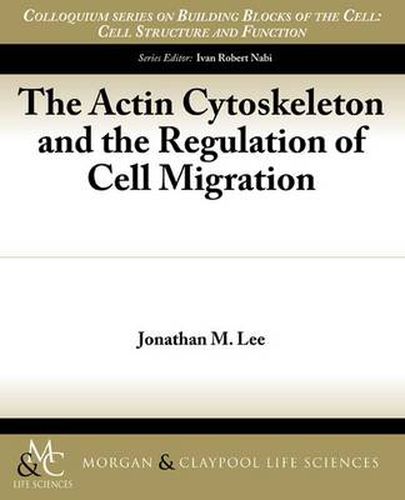The Actin Cytoskeleton and the Regulation of Cell Migration
Jonathan M. Lee

The Actin Cytoskeleton and the Regulation of Cell Migration
Jonathan M. Lee
The mammalian cytoskeleton is an internal framework of actin, tubulin, and intermediate filament proteins. Proteins of these three classes assemble non-covalently into filamentous polymers that support the structural integrity of the relatively fragile lipid plasma membrane. In addition, cytoskeletal polymers provide the mechanical strength that hold a cell together and anchor it to its growth substrate. The cytoskeleton must also have the capacity for rapid and substantial remodeling and provide the motive and tractor force necessary to drive motility. As such, the cytoskeleton has a functional duality: sufficiently rigid to prevent plasma membrane deformation but pliable enough to allow for cytokinesis; sufficiently adhesive to allow for traction but dynamic enough to allow movement from one place to another. A major research challenge in cytoskeleton biology is to understand how cytoskeletal proteins assemble and dissemble in support of physiological processes. This chapter will focus on the role of the actin cytoskeleton in cell migration. More specifically, we will focus on the actin cytoskeleton of vertebrate cells.
This item is not currently in-stock. It can be ordered online and is expected to ship in approx 2 weeks
Our stock data is updated periodically, and availability may change throughout the day for in-demand items. Please call the relevant shop for the most current stock information. Prices are subject to change without notice.
Sign in or become a Readings Member to add this title to a wishlist.


